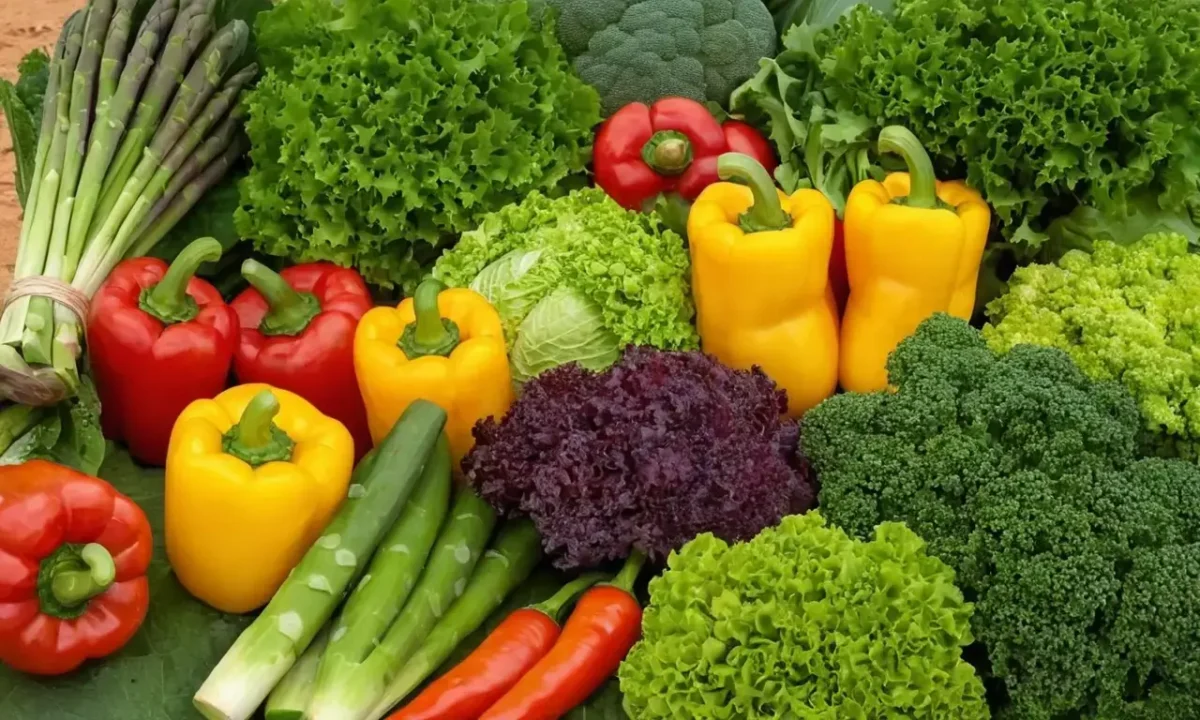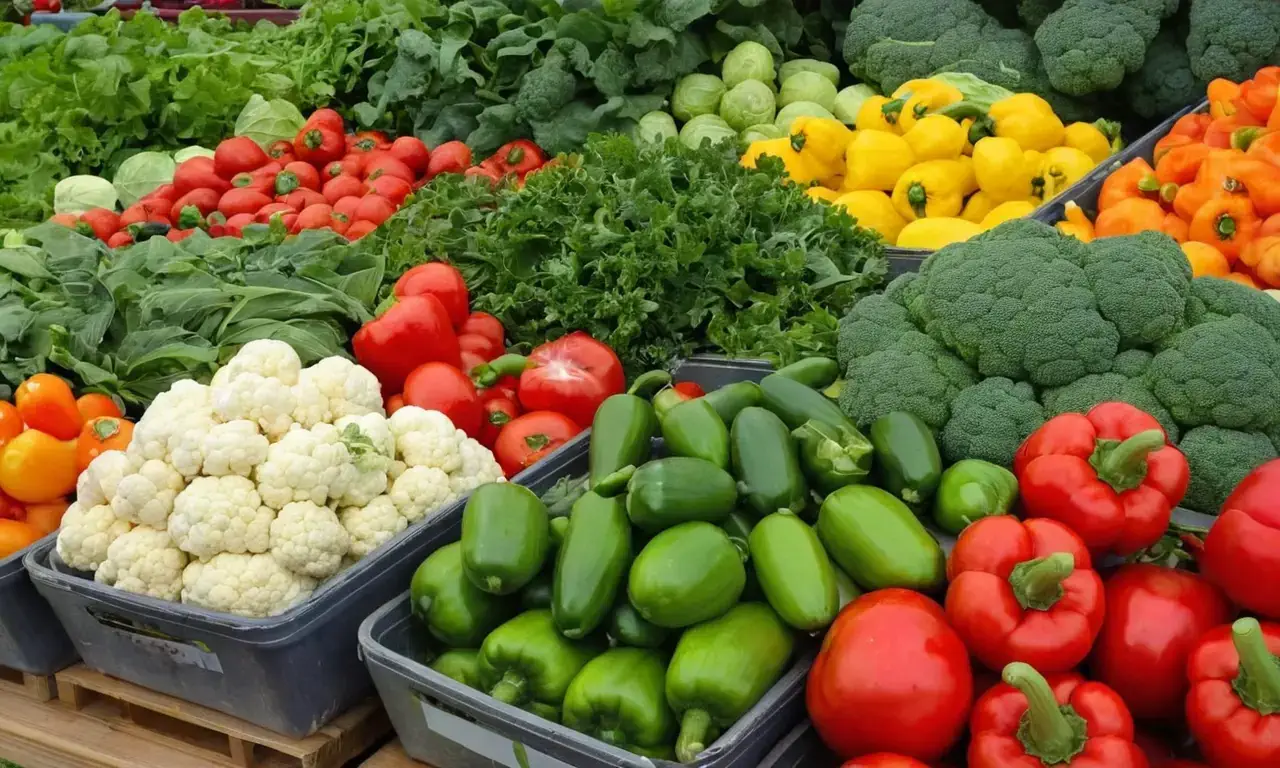
Vegetables: Nutritional Benefits and Seasonal Varieties

Vegetables are a crucial part of a healthy diet, providing essential nutrients and fiber. They come in various shapes, sizes, and colors, each with its unique taste and nutritional profile. From the vibrant greens to the earthy roots, vegetables offer a world of flavors and health benefits that can enhance our lives.
The objective of this article is to delve into the wonderful world of autumn season foods, exploring their types, nutritional benefits, seasonal varieties, storage tips, cooking methods, and fun facts. By understanding these aspects, we can appreciate the importance of incorporating vegetables into our daily meals and make informed choices about which ones to eat during different times of the year.
Overview
Vegetables are a diverse group of plant-based foods that play a vital role in maintaining good health. They are rich in vitamins, minerals, antioxidants, and fiber, making them an essential component of a balanced diet. The variety of vegetables available is staggering, with over 50 different types commonly consumed worldwide.
Types of Vegetables
Vegetables can be categorized into several groups based on their characteristics and nutritional profiles. Some of the most common types include:
Leafy Greens
Leafy greens are among the healthiest vegetables you can eat. They are rich in vitamins A, C, and K, making them an excellent choice for those looking to boost their immune system. Spinach, kale, collard greens, and Swiss chard are popular examples of leafy greens that can be easily incorporated into salads, smoothies, or sautéed as a side dish.
Cruciferous Vegetables
Cruciferous vegetables belong to the Brassica family and include broccoli, cauliflower, cabbage, and Brussels sprouts. These vegetables contain sulforaphane, which has been shown to have anti-cancer properties. They are also rich in vitamins C and K and can be steamed, roasted, or sautéed for a delicious meal.
Root Vegetables
Root vegetables include carrots, beets, turnips, and sweet potatoes. These vegetables are high in fiber and vitamins A and C, making them an excellent choice for those looking to maintain healthy digestion and immune function. They can be boiled, mashed, or roasted as a side dish.
Allium Vegetables
Allium vegetables include onions, garlic, leeks, and shallots. These vegetables have antibacterial properties that can help lower cholesterol levels and reduce the risk of certain diseases. They are versatile and can be used in soups, stews, salads, or as a flavor enhancer for various dishes.
Mushrooms
While not technically a vegetable, mushrooms are often used as one due to their nutritional profile and culinary uses. They contain antioxidants that can boost the immune system and have been shown to have anti-inflammatory properties. They can be sautéed, grilled, or added to soups for extra flavor.
Nutritional Benefits
Vegetables offer numerous health benefits, including:
- Reducing the risk of chronic diseases like heart disease, diabetes, and certain cancers by providing essential vitamins and minerals.
- Supporting healthy digestion and bowel function due to their high fiber content.
- Providing essential vitamins and minerals for optimal bodily functions, such as vitamin C for immune system support.
- Aiding in weight management by being low in calories and high in fiber.
Seasonal Varieties

Some vegetables are best consumed during specific seasons:
Spring
In the spring season, asparagus, peas, and radishes are popular choices. These vegetables are typically harvested when they are young and tender, making them perfect for salads or steaming.
Summer
During the summer months, corn, bell peppers, and zucchini are in season. These vegetables are rich in water content and can be grilled, sautéed, or added to salads for a refreshing meal.
Fall
In the fall season, pumpkins, squash, and sweet potatoes are harvested. These vegetables are high in fiber and vitamins A and C, making them an excellent choice for soups, stews, or roasted as a side dish.
Winter
During the winter months, root vegetables like carrots and beets can be stored for consumption. They provide essential nutrients during a time when fresh produce may be scarce.
Storage Tips
To keep your vegetables fresh for a longer period:
- Store them in a cool, dry place to prevent moisture buildup.
- Use breathable containers or bags to maintain air circulation around the vegetables.
- Keep them away from direct sunlight and moisture to prevent spoilage.
- Freeze or can them if you won't use them within a few days.
Cooking Methods
Vegetables can be prepared in various ways, each bringing out their unique flavors and textures:
Steaming
Steaming is a healthy way to preserve nutrients while cooking. This method involves placing vegetables in a steamer basket over boiling water for a short period.
Roasting
Roasting brings out the natural sweetness of vegetables. Simply toss them with olive oil, salt, and your choice of herbs before roasting in the oven.
Grilling
Grilling adds smoky flavor and texture to vegetables. Brush them with olive oil and grill until tender for a delicious side dish.
Stir-frying
Stir-frying is a quick and easy way to cook vegetables. This method involves rapidly cooking them in a wok or large skillet with minimal oil.
Fun Facts
Vegetables are not only nutritious but also fascinating:
- The world's largest vegetable producer is China, accounting for over 40% of global production.
- Leafy greens like kale and spinach have been consumed by humans for thousands of years, with evidence of their use dating back to ancient civilizations in Egypt and Greece.
- Carrots were originally purple, not orange. They became orange due to selective breeding.
Conclusion
Vegetables are a vital component of a healthy diet, offering numerous nutritional benefits and culinary uses. By understanding the different types, seasonal varieties, storage tips, cooking methods, and fun facts about vegetables, we can appreciate their importance in our daily lives. Whether you're looking to boost your immune system or simply enjoy a delicious meal, incorporating more vegetables into your diet is a great step towards maintaining overall health and well-being.
Leave a Reply





Related Links